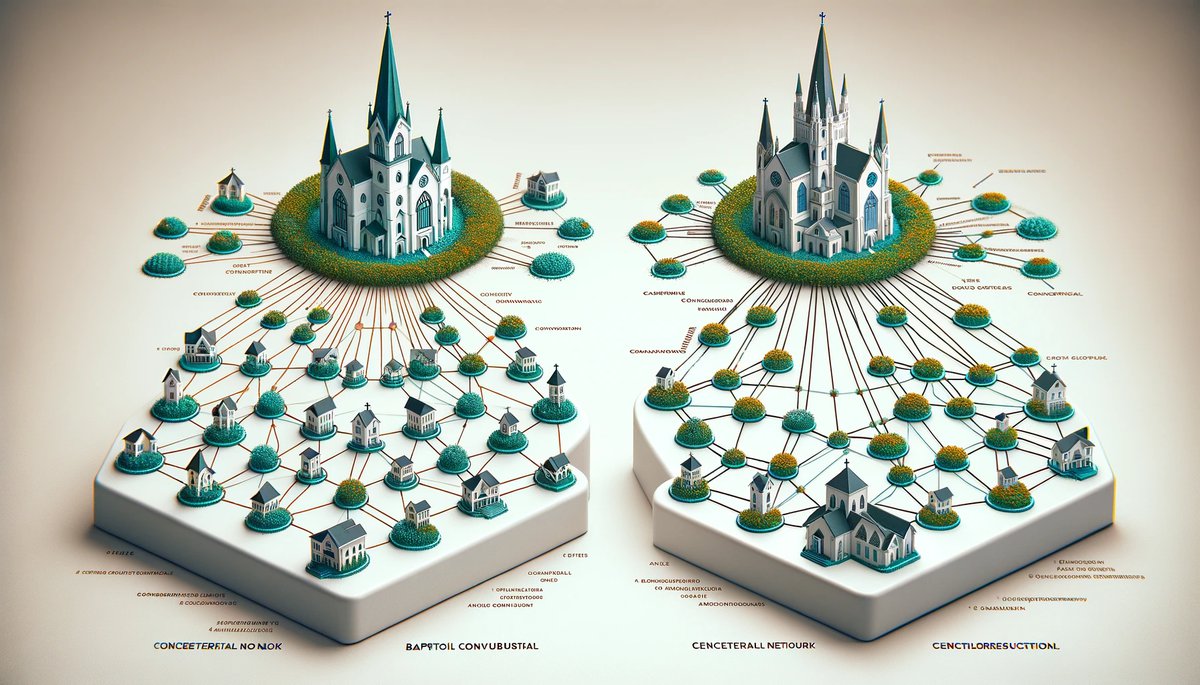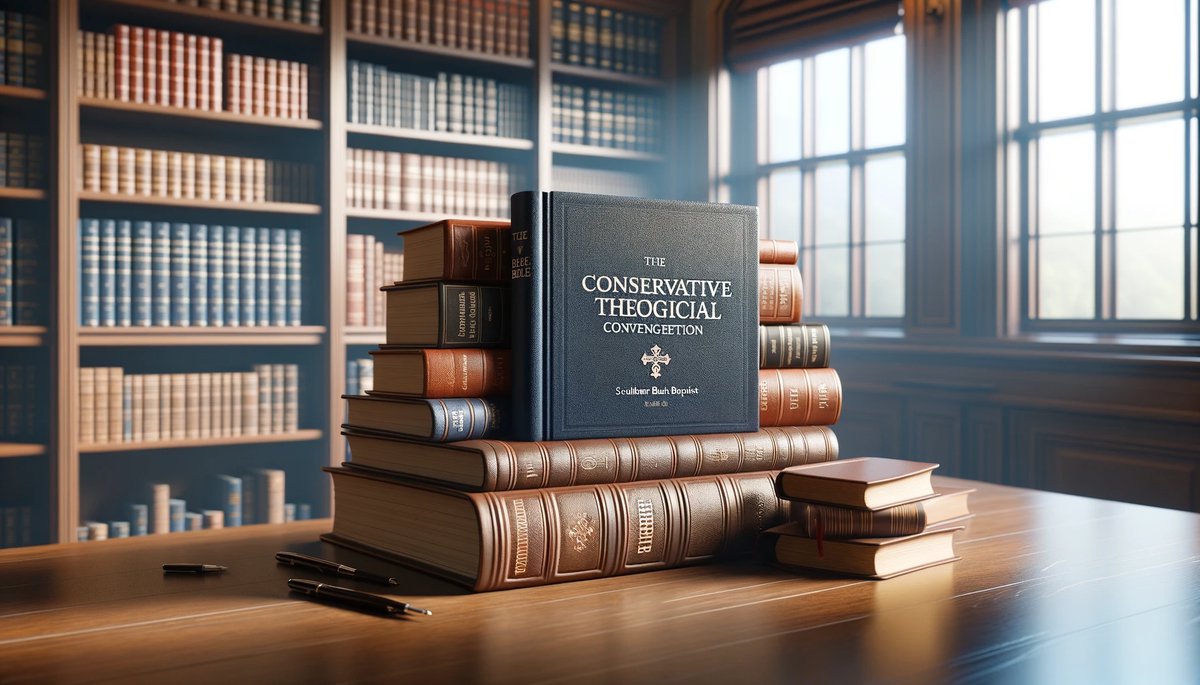Home>Theology and Spirituality>What Is The Difference Between Episcopal And Baptist


Theology and Spirituality
What Is The Difference Between Episcopal And Baptist
Published: February 20, 2024
Ericka Andersen, an editor at Christian.net, expertly merges digital strategy with content creation, focusing on faith and societal issues. Her communication skills enhance the platform's engaging narratives, fostering meaningful dialogue on belief's impact on society.
Discover the key distinctions between Episcopal and Baptist beliefs and practices in theology and spirituality. Explore the differences to gain a deeper understanding.
(Many of the links in this article redirect to a specific reviewed product. Your purchase of these products through affiliate links helps to generate commission for Christian.net, at no extra cost. Learn more)
Table of Contents
Introduction
The Episcopal Church and the Baptist denomination are two distinct branches within Christianity, each with its own set of beliefs, practices, and traditions. While both groups share a common faith in Jesus Christ, they differ in various theological and ecclesiastical aspects. Understanding the differences between Episcopal and Baptist traditions can provide valuable insights into the diverse tapestry of Christian expression.
The Episcopal Church, also known as the Protestant Episcopal Church in the United States, is part of the Anglican Communion. It traces its roots to the Church of England and embraces a liturgical worship style that incorporates ancient traditions and sacraments. On the other hand, the Baptist denomination is characterized by its emphasis on believer's baptism, congregational governance, and a diverse range of theological perspectives within its congregations.
Exploring the distinctions between these two Christian traditions can shed light on the rich theological diversity present within the broader Christian faith. From their beliefs and practices to their church structures and leadership, the Episcopal and Baptist traditions offer unique perspectives on the Christian journey. Let's delve deeper into the contrasting aspects of these two traditions to gain a deeper understanding of their theological and ecclesiastical differences.
Beliefs and Practices
Episcopal Beliefs and Practices
The Episcopal Church holds to a sacramental and liturgical worship tradition, drawing from ancient Christian practices and liturgies. Central to Episcopal belief is the affirmation of the Nicene Creed and the Apostles' Creed as statements of faith. The Eucharist, also known as Holy Communion, is a focal point of worship, emphasizing the real presence of Christ in the elements. Episcopalians place a strong emphasis on the authority of scripture, tradition, and reason as sources of theological understanding, a concept often referred to as the "three-legged stool."
In terms of practices, the Episcopal Church practices infant baptism and confirmation, with a strong emphasis on the sacraments as outward signs of God's inward grace. The liturgical calendar, including observances such as Advent, Lent, and Holy Week, plays a significant role in shaping the worship and spiritual life of Episcopalians. The use of liturgical vestments, formal prayers, and the Book of Common Prayer are integral to Episcopal worship services, reflecting a reverence for the historical and sacramental aspects of Christian faith.
Baptist Beliefs and Practices
Baptists are known for their emphasis on believer's baptism, viewing it as an outward expression of an individual's personal faith and commitment to Christ. This practice is rooted in the belief in the autonomy of the local church and the priesthood of all believers. While Baptists affirm the authority of scripture, they often prioritize a congregational approach to decision-making and governance, allowing each local church to operate independently under the guidance of its members.
In terms of worship, Baptist services often feature congregational singing, expository preaching, and a focus on the proclamation of the Word. The Lord's Supper, or Communion, is observed in various ways across Baptist congregations, with differing perspectives on the frequency and significance of the practice. Baptists also celebrate significant Christian holidays such as Christmas and Easter, but the liturgical calendar and formalized liturgical practices are generally less prominent in Baptist worship services compared to Episcopal traditions.
Contrasting Perspectives
The Episcopal and Baptist traditions offer contrasting perspectives on beliefs and practices within the Christian faith. While Episcopalians embrace a sacramental and liturgical approach to worship, Baptists emphasize believer's baptism and congregational autonomy. These differences reflect the diverse theological expressions and historical developments within Christianity, highlighting the richness of faith traditions that continue to shape the spiritual journeys of believers around the world.
Church Structure
The structure of a church plays a significant role in shaping its governance, decision-making processes, and overall organizational dynamics. Both the Episcopal Church and the Baptist denomination exhibit distinct approaches to church structure, reflecting their theological emphases and historical developments.
Episcopal Church Structure
The Episcopal Church operates within a hierarchical structure that is rooted in the historical and ecclesiastical traditions of Anglicanism. At the national level, the presiding bishop serves as the chief pastor and primate, providing spiritual leadership and guidance to the entire denomination. The General Convention, consisting of the House of Bishops and the House of Deputies, serves as the legislative body responsible for setting policies and making decisions on behalf of the church.
Within the local context, Episcopal churches are overseen by rectors or priests-in-charge, who are responsible for the spiritual well-being of their congregations. Additionally, each diocese is led by a bishop, who serves as the chief pastor and overseer of the clergy and congregations within the diocesan boundaries. This episcopal form of governance emphasizes the role of bishops as guardians of the faith and as symbols of unity within the church.
Baptist Church Structure
In contrast, the Baptist denomination is characterized by its congregational form of governance, emphasizing the autonomy of individual local churches. Each Baptist congregation operates independently, with its members participating in decision-making processes and the selection of church leaders. While some Baptist associations and conventions provide avenues for cooperation and fellowship among churches, the fundamental principle of congregational autonomy remains a defining feature of Baptist church structure.
Baptist churches are typically led by pastors, who are responsible for preaching, teaching, and providing pastoral care to their congregations. Deacons and church committees often play significant roles in the decision-making processes within Baptist churches, reflecting a shared responsibility among the members for the overall functioning of the congregation.
Contrasting Dynamics
The contrasting church structures of the Episcopal Church and the Baptist denomination reflect differing perspectives on ecclesiastical authority, decision-making, and the role of clergy and laity within the church. While Episcopalians adhere to an episcopal form of governance with a clear hierarchical structure, Baptists prioritize the autonomy of local congregations and the active participation of members in church affairs. These structural differences contribute to the unique identities and organizational dynamics of each tradition, shaping the ways in which they carry out their mission and ministry within the broader Christian community.
Sacraments and Ordinances
The Episcopal Church and the Baptist denomination hold distinctive views on sacraments and ordinances, reflecting their theological perspectives and historical traditions. Understanding these differences provides valuable insights into the spiritual practices and beliefs that shape the worship and communal life of each tradition.
Episcopal Sacraments
In the Episcopal tradition, sacraments are regarded as sacred rites instituted by Christ, conveying God's grace to the participants. The Episcopal Church recognizes two primary sacraments: Baptism and Eucharist, along with five other sacramental rites: Confirmation, Matrimony, Reconciliation, Unction, and Holy Orders. These sacraments are seen as outward and visible signs of God's inward and spiritual grace, serving as profound expressions of faith and communal worship.
Baptism holds a central place in Episcopal theology, signifying initiation into the Christian faith and the community of believers. The sacrament of Baptism is often administered to infants as well as adults, symbolizing the cleansing of sin and the reception of the Holy Spirit. Eucharist, also known as Holy Communion, is a focal point of Episcopal worship, emphasizing the real presence of Christ in the consecrated elements of bread and wine. The Eucharistic celebration is deeply rooted in liturgical traditions, drawing from ancient Christian practices and prayers.
Baptist Ordinances
In contrast, the Baptist tradition emphasizes two ordinances: Believer's Baptism and the Lord's Supper (Communion). Baptists view these practices as symbolic acts of obedience and testimony rather than as sacraments conveying grace ex opere operato. Believer's Baptism, performed through immersion, represents a public declaration of faith and a personal commitment to Christ. It symbolizes the believer's identification with the death, burial, and resurrection of Jesus Christ.
The Lord's Supper, or Communion, holds a significant place in Baptist worship, serving as a memorial of Christ's sacrificial death and a symbol of spiritual nourishment for believers. While Baptists do not subscribe to the concept of transubstantiation or the real presence of Christ in the elements, they view Communion as a meaningful practice that fosters spiritual reflection and unity within the body of believers.
Contrasting Perspectives
The Episcopal emphasis on sacraments as channels of divine grace and the Baptist understanding of ordinances as symbolic acts of faith reflect the theological diversity within Christianity. These differing perspectives shape the worship experiences and spiritual formation of Episcopalians and Baptists, highlighting the rich tapestry of Christian traditions and theological interpretations.
The distinct approaches to sacraments and ordinances underscore the diverse ways in which Christians engage with their faith, express their beliefs, and participate in communal worship. While Episcopalians find spiritual significance in the sacramental life of the church, Baptists emphasize the symbolic nature of their ordinances, both traditions embody the profound spiritual depth and significance of these sacred practices within their respective faith communities.
Leadership and Authority
The Episcopal Church and the Baptist denomination exhibit distinct approaches to leadership and authority, reflecting their theological convictions and ecclesiastical structures. These differences in leadership dynamics significantly impact the decision-making processes, pastoral roles, and overall organizational governance within each tradition.
Episcopal Leadership and Authority
In the Episcopal tradition, leadership and authority are vested in a hierarchical structure that emphasizes the role of bishops as guardians of the faith and unity within the church. At the national level, the presiding bishop serves as the chief pastor and primate, providing spiritual guidance and oversight to the entire denomination. The General Convention, comprising the House of Bishops and the House of Deputies, serves as the legislative body responsible for setting policies and making decisions on behalf of the church.
Within local congregations, Episcopal churches are led by rectors or priests-in-charge, who bear the pastoral responsibility for nurturing the spiritual well-being of their congregations. Additionally, each diocese is overseen by a bishop, who serves as the chief pastor and spiritual leader, providing guidance and oversight to the clergy and congregations within the diocesan boundaries. This episcopal form of governance underscores the significance of apostolic succession and the historical continuity of leadership within the church.
Baptist Leadership and Authority
In contrast, the Baptist tradition embraces a congregational form of governance, emphasizing the autonomy of individual local churches and the priesthood of all believers. Each Baptist congregation operates independently, with its members actively participating in decision-making processes and the selection of church leaders. Pastors play a central role in Baptist churches, providing spiritual leadership, preaching, and pastoral care to their congregations.
Deacons and church committees often collaborate with the pastor in the decision-making processes, reflecting a shared responsibility among the members for the overall functioning of the congregation. While some Baptist associations and conventions provide avenues for cooperation and fellowship among churches, the fundamental principle of congregational autonomy remains a defining feature of Baptist church governance.
Contrasting Dynamics
The contrasting approaches to leadership and authority within the Episcopal Church and the Baptist denomination reflect differing perspectives on ecclesiastical structure, the role of clergy, and the distribution of decision-making power. While Episcopalians adhere to a hierarchical model with a clear emphasis on apostolic succession and episcopal authority, Baptists prioritize congregational autonomy and the active participation of members in church affairs.
These contrasting dynamics shape the organizational governance, pastoral roles, and decision-making processes within each tradition, contributing to the unique identities and operational frameworks of Episcopal and Baptist churches. The distinct approaches to leadership and authority underscore the diverse ways in which these traditions navigate the complexities of church governance and pastoral ministry, reflecting the rich tapestry of Christian expressions within the broader landscape of faith traditions.
Conclusion
In conclusion, the Episcopal Church and the Baptist denomination represent two distinct expressions of the Christian faith, each characterized by unique theological perspectives, ecclesiastical structures, and worship practices. The exploration of their differences provides valuable insights into the diverse tapestry of Christian traditions and the rich theological diversity present within the broader Christian community.
The Episcopal Church, with its sacramental and liturgical worship tradition, emphasizes the centrality of the Eucharist and the significance of ancient Christian practices in shaping its worship and spiritual life. The hierarchical structure, episcopal authority, and emphasis on apostolic succession underscore the historical continuity and the role of bishops as guardians of the faith within the Episcopal tradition.
On the other hand, the Baptist denomination's emphasis on believer's baptism, congregational autonomy, and symbolic ordinances reflects a distinct theological emphasis on individual faith and the priesthood of all believers. The congregational form of governance, with its emphasis on the autonomy of local churches, highlights the active participation of members in decision-making processes and the pastoral leadership of individual congregations.
Despite their differences, both traditions embody the profound spiritual depth and significance of their sacred practices within their respective faith communities. The Episcopal and Baptist traditions offer contrasting perspectives on beliefs, practices, church structures, sacraments, ordinances, leadership, and authority, contributing to the rich tapestry of Christian expressions and theological interpretations.
Ultimately, the differences between the Episcopal Church and the Baptist denomination serve as a testament to the diverse ways in which Christians engage with their faith, express their beliefs, and participate in communal worship. These differences enrich the broader Christian landscape, reflecting the multifaceted nature of the Christian journey and the various paths through which individuals and communities seek to encounter and embody the teachings of Jesus Christ.
As we continue to navigate the complexities of faith and spirituality, the Episcopal and Baptist traditions stand as reminders of the beauty and diversity inherent within the Christian faith, inviting us to appreciate the richness of theological expressions and the enduring legacy of Christian traditions throughout history.











